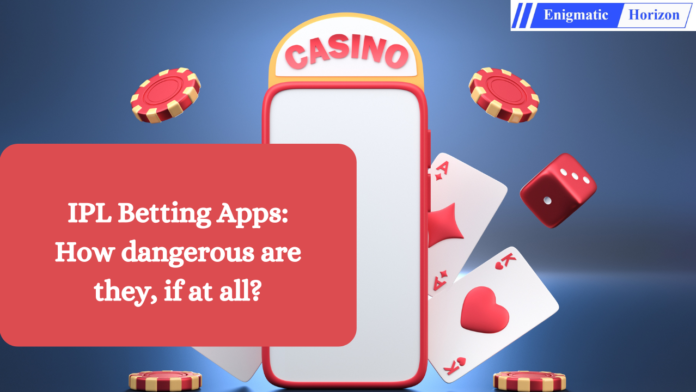Nupur Jha
The Enforcement Directorate (ED) inquiry is summoning an increasing number of cricketers, celebrities, influencers, and such popular individuals promoting online gambling apps. Over 40 celebrities have been involved in promoting Fair Play during the 2023 IPL.
But what is Fairplay, and what do these apps do? Fairplay and similar apps are online sports betting platforms that market themselves as sports or news apps, either on the web or through various channels.
In India, such gambling apps are banned, and they cannot promote or advertise themselves. However, companies have found creative ways to attract more people and users, which should be a concern for society. To understand how these gambling apps work and how they bypass Indian laws despite being banned, here is everything you should know.
What Are These IPL Gambling Apps And How Do They Protect Themselves From the Law?
In India, betting and gambling are illegal, which means these companies are not allowed to even advertise themselves. However, they have found creative ways to gain more users. During the IPL, companies engage in aggressive marketing, enticing people to bet their money on cricket.
In the 16th century, the English court distinguished between games of skill and games of chance. For example, cricket requires more skill and a bit of luck, whereas games like snakes and ladders rely heavily on luck. This implies that players need basic knowledge, understanding, and awareness about the game before participating.
In 1951, the Supreme Court upheld Mr. RMB Chamarbaugwala’s case, which sought to legalize rummy as a game of skill. The court approved his appeal, establishing an important criterion for determining the legality of games.
Based on this precedent, apps like MPL and Dream11 are legalized, contributing to the rise of fantasy sports games. These companies require players to construct their teams within a set budget and offer a cash pool, providing multiple decision points instead of binary outcomes. However, these regulations do not extend to Fairplay, 1XBet, and other betting websites, which remain illegal.
Despite this, companies exploit the loophole in the Public Gambling Act of 1867, which does not differentiate between online and physical betting, allowing them to determine their legality.
How Do They Operate?
Such companies require players to create accounts, typically receiving an OTP for sign-up. In the case of 1XBet, the messages are in Russian rather than English. Once signed up, players can place their bets, often enticed by offers to match their deposit money.
Transactions are conducted using UPI, with the addresses frequently changing to different names. These companies are not registered in India; instead, they utilize offshore entities registered in countries known as tax havens, where tax disclosure and financial transparency requirements are minimal, providing a safe haven for these operations.
For advertising, companies employ surrogate marketing, presenting themselves as something other than gambling platforms. Similarly, alcohol companies may present themselves as soda or water brands, while gambling websites may appear as news, blogs, or fantasy games, creating confusion for the government.
The Support From Celebrities, Cricketers, And Its Impact On Youth
Due to the confusion surrounding government regulations and laws, betting games operate without hindrance, often shifting the responsibility onto users. Many websites explicitly mention countries where gambling or sports betting is banned, advising players from those regions to refrain from using their services.
Betting on IPL games and other sports has become a contentious issue, especially with the involvement of famed celebrities like Ranbir Kapoor, Shraddha Kapoor, Varun Dhawan, Kiara Advani, and Jacqueline Fernandez, alongside sports persons like Mithali Raj, Mary Kom, and Saina Nehwal.
The sports gambling industry remains a contentious topic for the government, with Indian courts struggling to differentiate between apps to legalize and to prohibit. This lack of clarity contributes to a situation where the nation’s youth are susceptible, particularly when influenced by their favorite sports celebrities and stars endorsing illegal websites. This susceptibility can lead to addiction, resulting in more than just financial losses. Research indicates a link between such games and health issues such as depression, anxiety, heart attacks, and life-threatening situations.
The proliferation of these games is concerning, especially considering how easily our youth can be influenced. It is imperative for the government and lawmakers to exercise greater control over what can be advertised on screens.
The disregard shown by celebrities towards the negative social impact of these websites and apps, despite being aware of their impact on the youth, is regrettable. Ultimately, the responsibility lies with the people and the youth of our country to be discerning about whom they follow and to raise their awareness accordingly.
